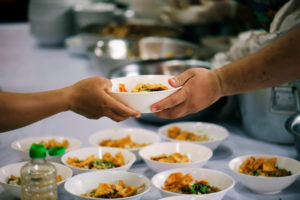The problem with becoming a statistic — such as being one of the 20 per cent of children living in dire poverty in this province — is that you stop being a person and become a number.
And numbers and statistics, says Alexander Elementary’s Aboriginal Education teacher Laurene Klyne, have no humanity and if repeated often enough lose the power to shock.
“We keep hearing about the number of poor children in B.C. and after a while we just become immune,” said Klyne.
Today is Christmas Eve — a time of giving and receiving unless you are poor — and Klyne has the antidote for anyone who has become inured to what those numbers are describing.
“Come to my school and look at all the little faces and see what poverty looks like. It’s pretty awful.
A short while ago Klyne attended a speech by a motivational speaker addressing a circle of high school students. He was a First Nations man who had overcome poverty and addiction and now owned a successful business.
“All the kids in the circle had their hoodies up, they were all shrouded and had an empty look in their eyes. Yeah, it really struck me — that’s poverty — they are living in hopelessness.”
Her school is on the outskirts of town and has 270 students.
Between 80 to 90 per cent of them are impoverished.
Numbers like that place it in a special category of needy schools in the province and put it among the most deserving of help from The Vancouver Sun’s Adopt-A-School campaign.
In her time there Klyne’s noticed that the number of parents struggling to feed their children has risen.
“I think there’s getting to be a bigger gap (between the poor and the comfortable) and poverty has become more pervasive,” she said.
The numbers needing feeding at the school each day are staggering
“We have about 80 students needing breakfast and 250 need lunch. All the food is paid for by community contributions, from private donations and from me applying to organizations like Adopt-A-School,” she said.
But donations are failing to keep up with the amount of food that needs to be bought to feed the numbers of impoverished children.
“We’re in a deficit and the principal says we can’t keep running like that,” she said.
Klyne and other teachers have been plugging the gaps with money from their own pockets but there’s only so much they can do, she says.
She is asking AAS for $4,000.
“I don’t want to be greedy, there are others who need help too,” she said.
However, she will need much more than that to deal with the problems she is facing and The Vancouver Sun Children’s Fund board, which administers AAS, will review the application to see if there are funds available to increase it.
Food left over on Fridays is sent home to families living in the most desperate of circumstances.
“There are a few families with many people living at home. We know of one with 20 people living in a house others with 12-14-or-18 people at home.
“It’s hard to imagine any child living like that.
“Some (adults) have jobs but they are the working poor and their pay isn’t very much so there’s not much money at home.
“So kids might not have any food from the time we send them home on Friday until we see them again on Monday.
“It’s awful, I know, but people are living in these conditions. It’s not easy, looking at my little kids. Sometimes I don’t know what to do with them.”
It’s not only food they need but clothes.
“We need winter jackets. Often all they have are hoodies. Some of the little kids come in with ones too big for them. They need boots, too.
“We go to other schools and gather up all the clothes from the lost and found that haven’t been claimed, and clean them. We have a second hand boutique in our school. We have clothes for small kids but not much for the Grade 6 and 7s.
“For the older kids it’s normal for them to want something fashionable but it’s hard to get clothes for the winter. It’s the big kids who get forgotten about,” she said.
The escape from all this is education, says Klyne, who teaches First Nations culture and language.
“We need to give these kids a leg up, give them opportunities to do well in school so they don’t drop out but graduate and go to university. We need to break the poverty cycle.”
By Gerry Bellett (gbellett@gmail.com)

